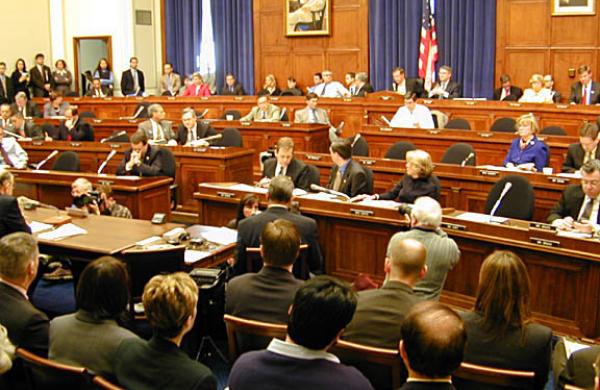
The House Ways and Means Committee will today mark up six bills to make various temporary tax relief provisions permanent. These bills represent most of the pro-growth provisions contained in the set of temporary tax relief measures known as the “extenders package.” If Congress does nothing, 55 separate tax increases which took effect on December 31, 2013 will be permanently-embedded in the tax code. This would be a permanent increase in tax revenue to the federal government of about $80 billion per year.
The common theme here is “do no harm.” The permanent tax relief is targeted to prevent the worst anti-growth tax hikes from taking effect for good. Unfortunately, there is one large omission–bonus depreciation.
These provisions include:
Small businesses can permanently expense up to $500,000 in business asset purchases. If current law is not changed, small businesses can only expense $25,000 of purchases for things like computers, office furniture, manufacturing equipment, etc. The rest must be subject to a slow, multi-year deduction process known as “depreciation.”
Make the research and experimentation credit permanent for larger firms. The biggest extender which drives the whole process is the “R&E credit.” This allows firms to claim a credit against tax for research and experimentation expenses which would otherwise have to be capitalized. With the highest corporate income tax in the developed world, it’s essential that companies be able to recover the costs of these investments quickly. The alternative is to drive up average effective tax rates so high that it makes more sense to relocate overseas.
Improve tax accounting rules for Subchapter-S corporations. There are two provisions considered by the committee which makes tax compliance easier for S-corporations, a common tax form for medium-sized, mature businesses. According to the IRS, there are 4.1 million S-corps with 7 million owners (S-corp owners pay the business’ taxes on their individual 1040s). The permanent law changes involve built-in gains and basis adjustments for charitable contributions.
Prevent potential double taxation of international income for large companies. The final two items would make permanent two key tax provisions which serve to prevent U.S.-based multi-national companies from having to pay taxes twice on the same income. The U.S. is one of the very few countries left in the world that seeks to tax the overseas income of its own companies, even if that income has already been subject to tax in the foreign jurisdiction. To ameliorate this potential global double taxation, the U.S. tax code has a mind-numbing hodgepodge of relief measures. The two being considered by the Committee are simply being made permanent. Until such time as Congress is prepared to embark upon international tax reform, these relief measures are essential to maintain. To junk them would be tantamount to telling U.S. companies, “we don’t want your business anymore–please take your jobs and capital overseas when it’s convenient for you.”
Bonus depreciation is the missing provision. There is one tax provision that should be made permanent which is not being considered by the Committee today–bonus depreciation. In fact, this tax measure is the crown jewel of the entire extenders package. It allows any company which buys business assets to immediately-expense half the value of what is purchased. The remaining half is subject to regular depreciation rules.
Under ideal tax policy, all the cost of business investment would be expensed in year one. That’s a building block of every conservative tax reform plan from the Fair Tax to the flat tax to everything in between. To lose 50 percent bonus depreciation would be a crippling loss. It represents the biggest gains the conservative movement has achieved toward a consumption tax base, the goal of all conservative tax reformers.
Bonus depreciation is the most important of all the extenders, and its permanent extension (on the way to full expensing in tax reform) should be considered by the Committee and the full House.
Addition by subtraction: the worst extender is not being considered. On the other end of the spectrum is the worst of all the extenders, the wind production tax credit. It is not being considered by the Committee today. The Wind Production Tax Credit (PTC) is a misguided tax policy that distorts energy markets and, when combined with state laws and federal regulations, undermines the reliability of America’s power markets. The wind PTC is distinctly different from appropriate cost recovery provisions and allows wind producers to reduce their income tax liability for simply existing. ATR applauds Chairman Camp’s decision to cull the PTC from necessary tax extenders.


